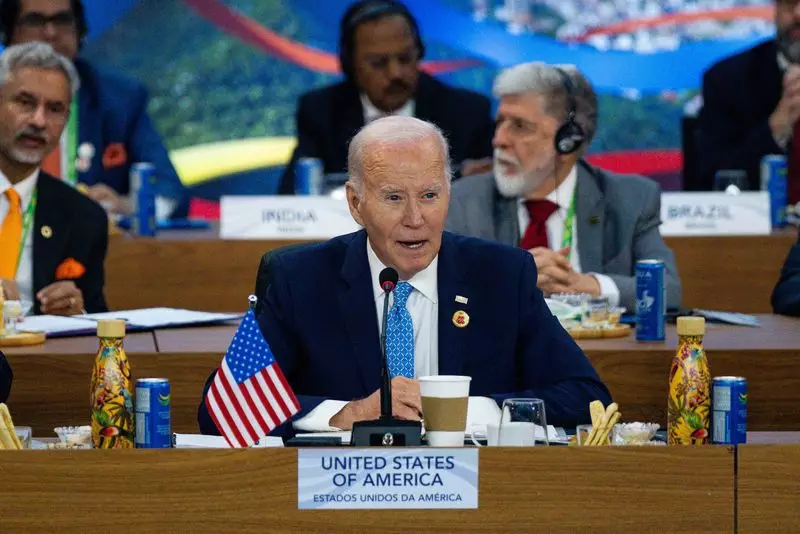In a landmark move for global development, President Joe Biden has committed to a $4 billion contribution to the International Development Association (IDA) fund of the World Bank, aimed at the world’s most impoverished nations. This commitment, made public during a closed session at the recent G20 summit in Rio de Janeiro, marks a significant increase from the $3.5 billion previously pledged in December 2021. The implications of this commitment extend far beyond financial assistance; they underscore a renewed focus on international cooperation and development that is essential for addressing global challenges.
Context and Significance of the Contribution
Biden’s proposition is noteworthy not merely for its monetary value but for its timing and context. As nations worldwide grapple with escalating climate challenges, conflicts, and economic strains exacerbated by the pandemic, the need for substantial financial support for the poorest segments of the population has never been more critical. The IDA fund primarily facilitates grants and concessional loans to nations unable to access traditional lending markets. Therefore, Biden’s increased pledge is an indication of a strategically fueled acknowledgment that the poorest countries require robust support to navigate their multifaceted crises.
The U.S. commitment, termed “historic” by deputy national security adviser Jonathan Finer, arrives at a pivotal moment. The forthcoming pledging conference in December will seek to surpass the IDA’s previous record of $93 billion—an ambitious endeavor that President of the World Bank, Ajay Banga, believes could reach as high as $120 billion, contingent on broader international collaboration.
However, the future of this commitment introduces an uncertain political dimension. With President-elect Donald Trump set to take office, past suggestions from his transition team regarding significant cuts to foreign aid raise questions about whether this commitment will indeed be honored. Furthermore, the U.S. Congress, responsible for appropriating the funds, may not engage with this budgetary allocation until after Trump assumes the presidency, positing an unpredictable trajectory for Biden’s ambitious pledge.
This situation poses a critical point of contention in U.S. domestic politics, highlighting the contrasting philosophies regarding foreign aid and international responsibilities. Should Trump’s administration choose to constrict global development funding, the impact could be deeply detrimental, particularly for nations reliant on U.S. support to address their pressing issues.
Ultimately, Biden’s pledge signals not only a strategic commitment to poverty alleviation but also a broader call for global cooperation in confronting crises that know no borders. With the ongoing challenges posed by climate change, economic disparity, and pandemics, the necessity for robust international partnerships is greater than ever. Biden’s international engagements, including establishing a bilateral clean energy partnership with Brazil, reflect a concerted effort to address these issues comprehensively.
This significant investment in the IDA fund might inspire other nations to follow suit, promoting a collaborative response to the urgent needs of the world’s poorest countries. As discussions for the legislative approval of this funding unfold, the global community will keenly observe the decisions made by the incoming administration and their long-term ramifications for international development efforts.

